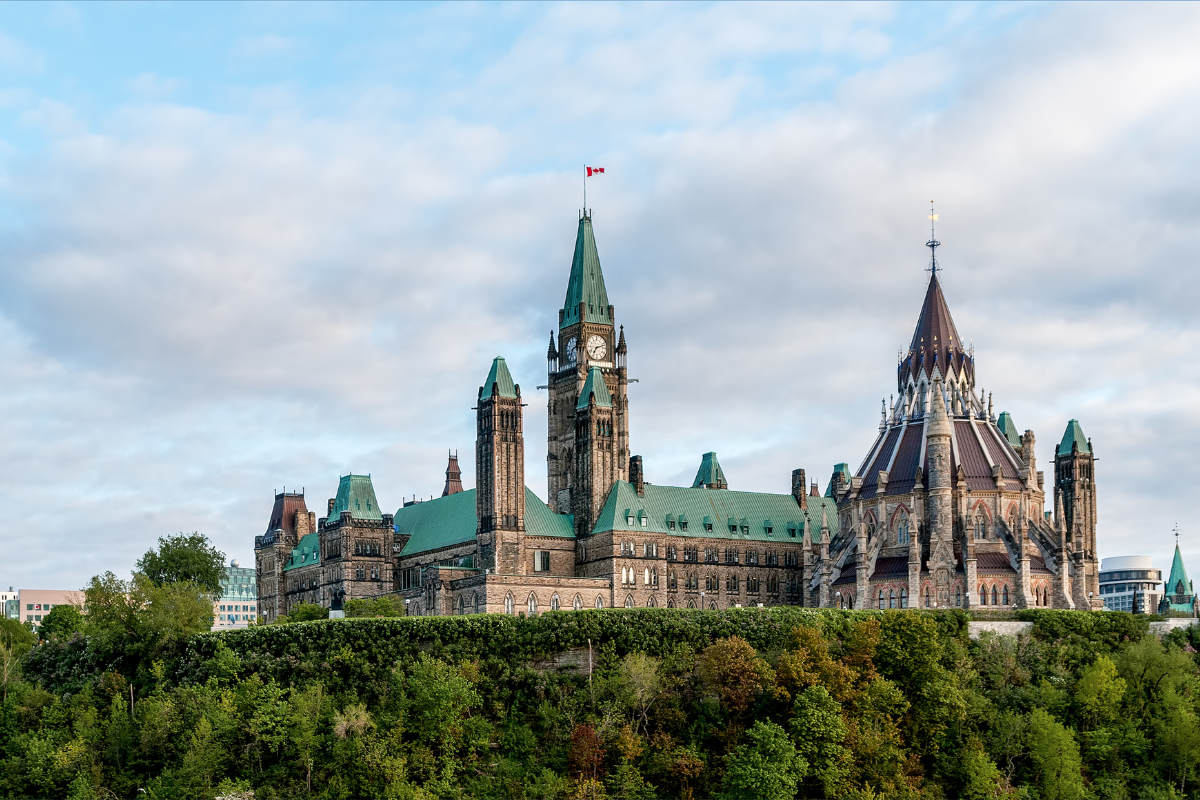
Today's Throne Speech marked a pivotal moment for Canada’s new government. It laid out a bold agenda and, just as importantly, acknowledged the defining economic challenge of our time: Canada’s persistent productivity crisis. In the speech, His Majesty King Charles III, outlined the Government’s position:
"The scale (of our agenda) will match the challenge of our times, and the ambitions of Canadians."
For the business community, the message was unmistakable. The government now sees what we’ve long argued: that weak productivity is the fault line beneath our economy. The speech recognized that without meaningful change, we will no longer be able to sustain the living standards Canadians expect or the public programs we rely on.
The priorities articulated by Prime Minister Mark Carney — including removing interprovincial trade barriers, unleashing infrastructure investment, deploying AI across government, and driving measurable outcomes from every public dollar — signal a readiness to govern for productivity.
Which is why, amid the bold vision and big ambitions, it can’t be only about ambition — it must be about a government that works as a whole. From my time working both at Queen’s Park and in Ottawa, it’s clear to me that one role will take on newfound significance and requires a person with the skills to match: the Prime Minister’s permanent Chief of Staff.
This government has signalled its intention to govern differently. It has issued the same mandate letter to every minister, outlined a single set of national priorities, and made clear that all parts of government must pull in the same direction. That kind of whole-of-government alignment demands strong leadership at the centre — someone who can knit the pieces together and keep them moving toward the goal.
Whoever steps into that role will need more than policy fluency or political instincts. They will need a deep understanding of how capital moves, how growth happens, and what conditions enable businesses to invest, expand, and compete globally. They will need to know how to navigate Ottawa, but also how to unlock Canada's potential. And they will need to do so with focus, speed, and a deep sense of national purpose.
This is a job for a builder. A system-thinker. Someone who can see around corners, bring unlikely allies to the table, and move an ambitious government from vision to delivery.
This may seem like Ottawa inside-baseball, but it’s not. The job of Chief of Staff is no longer simply one of internal gatekeeping or message discipline. In the context of this government’s goals, it is arguably the most consequential appointment in the country.
The next Chief of Staff will not just shape the operations of the Prime Minister’s Office: they will shape the execution of a national project. One that touches every major portfolio, affects every region, and aims to rebuild the economic foundation on which future generations will depend.
To those considering the role: there may never be a greater opportunity to do something extraordinary in service of this country. The challenges are enormous, but so is the chance to bend the arc of our economic story in a better direction. This is an opportunity to build a legacy.
The moment demands clarity. Canada is not growing poorer because of a lack of resources or ingenuity. We are slipping because we have failed to adapt. We have focused our national spending on consumption rather than production. We have layered on regulation faster than we’ve modernized it. We have allowed tax and permitting systems to become unpredictable and uncompetitive. We have built a business environment that too often prioritizes caution over capacity. In doing so, we’ve let our edge grow dull.
The new government appears willing to take a different approach. And that is encouraging.
These are the levers that must be pulled if we are to reverse our economic drift. But saying so is only step one. The harder work lies ahead.
Transformational ambitions mean little if they are not implemented. And the complexity of what lies ahead cannot be overstated. The government will need to move with speed and precision. It will need to coordinate across jurisdictions, work productively with industry, and cut through decades of inertia in how policy is designed and delivered.
This week’s Throne Speech got the diagnosis right. Now the work begins to deliver. It will require discipline, partnership, and a willingness to govern differently. And it will require leadership — not only from elected officials, but from the right people behind the scenes.
The mechanics of government are going to matter more than ever. In a mandate defined by ambition, success will be defined by execution.
-

Giles Gherson
President and Chief Executive Officer, Toronto Region Board of Trade
Giles Gherson serves as the President and Chief Executive Officer of the Toronto Region Board of Trade, among North America's largest and most influential business organizations. In this role, Giles leads the Board's initiatives to strengthen and sustain business growth and competitiveness across the Toronto region, one of the fastest-growing metropolitan centres in North America.
Giles is dedicated to addressing the region’s most pressing challenges, including the widening productivity gap, the ongoing congestion crisis, and barriers to greater regional investment. At the same time, he champions Toronto’s vibrant growth and its role as a global leader in AI, data hubs and the diversity of its business sector. Under his leadership, the Board established the CEO-led Business Council of Toronto to tackle critical issues, with a strategic focus on Advanced Manufacturing, Climate and Energy Transition, the GTA West Economic Gateway, and the Financial Services sector.
Prior to joining the Board in 2022, Giles spent over 25 years in the private and public sector in progressively senior roles. He spent 15 years with the Province of Ontario, where he held multiple influential Deputy Minister roles – most extensively and recently as Deputy Minister, Economic Development. Previously, Giles has led the government’s economic growth and competitiveness policy, overseen the recent creation of two new agencies, Invest Ontario and IP Ontario, and worked to attract a wave of technology and manufacturing investments, including the retooling of the province’s auto sector for next generation battery electric vehicles. He currently sits on Ontario’s Advanced Manufacturing Council, working to boost the long-term competitiveness and resilience of this sector by attracting key investments and creating opportunities for businesses across the province.
Prior to his role in government, Giles worked as editor-in-chief of the Toronto Star, political editor of the National Post and editor of the Globe and Mail’s Report on Business. Giles is the immediate past President of the Board of Directors at the Institute of Public Administration of Canada, the country’s leading professional organization supporting excellence in the public sector.


